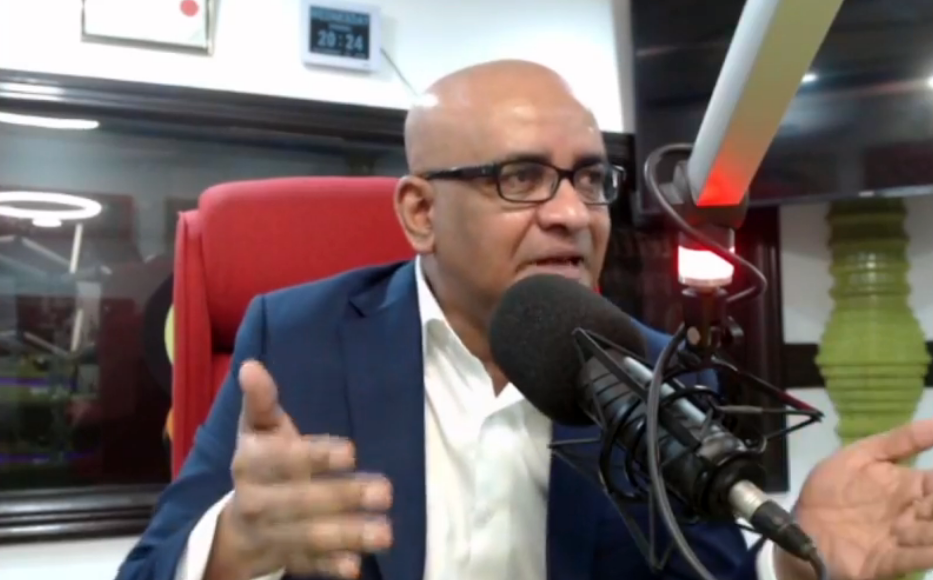The role of international companies in the development of Guyana’s oil and gas industry is vital if the vast hydrocarbon resources discovered off the country’s coast are to be developed. Vice President, Bharrat Jagdeo, says the objective must be to ensure these companies operate in a manner that maximises benefits to the country but to think Guyana can develop the oil fields on its own is not a realistic position.
“How much do you think is our total deposit; this is deposits from government, the commercial banks and the non-financial institutions?” Mr. Jagdeo asked Publisher of Kaieteur News, Glenn Lall, during an appearance on the radio programme Guyana’s Oil and You, on Wednesday evening. “Total deposit is US$2.6 billion. To develop Liza [Phase 1] alone cost…[around] US$4 billion. If we take all of the deposits by every single Guyanese in the banking system or in the non-financial banking systems and the commercial banks and the government deposits in the banking system and put all of them together, we can’t even finance Liza 1.”
The Vice President was at the time highlighting the role foreign direct investments play, particularly for developments of this magnitude where Guyana is not required to put in any money upfront. He emphasized that incentivizing companies to invest in the country is necessary if major projects are to move forward.
“If you want those resources to be developed, you have to first incentivize but protect the country,” he said.
The Kaieteur News publication has been particularly critical of the fiscal terms of the Stabroek block Production Sharing Agreement (PSA), with Mr. Lall referring to it on the programme as “one of the worst contracts on earth.”
But Mr. Jagdeo said while he believes the terms should be more favourable to Guyana, which is why a new model PSA is being developed for future agreements, labeling the contract as one of the worst in the world would not be an accurate characterization. He pointed out that pronouncements on the contract terms vary among international analysts with some saying the PSA falls mid-range when compared to countries like Guyana.
“I know from a country’s perspective that we have to get more and that’s where we’re aiming for in the standard PSAs to come,” Mr. Jagdeo said.
“We have to pressure these companies to service the industry from Guyana, not from Trinidad and Tobago, not out of the U.S. but from Guyana. When that happens, then our locals start benefiting because the money is spent here, the investment is here,” he added.
Mr. Jagdeo said spin-off benefits to the country are already evident with major projects moving forward. “We couldn’t get a single hotel here. Look at the Marriott; we had to co-invest in the Marriott…But we already have now 29 proposals and I think seven of those are serious ones that will end up in seven, eight new hotels.”
He said these types of projects are associated developments which Guyana will benefit from.



